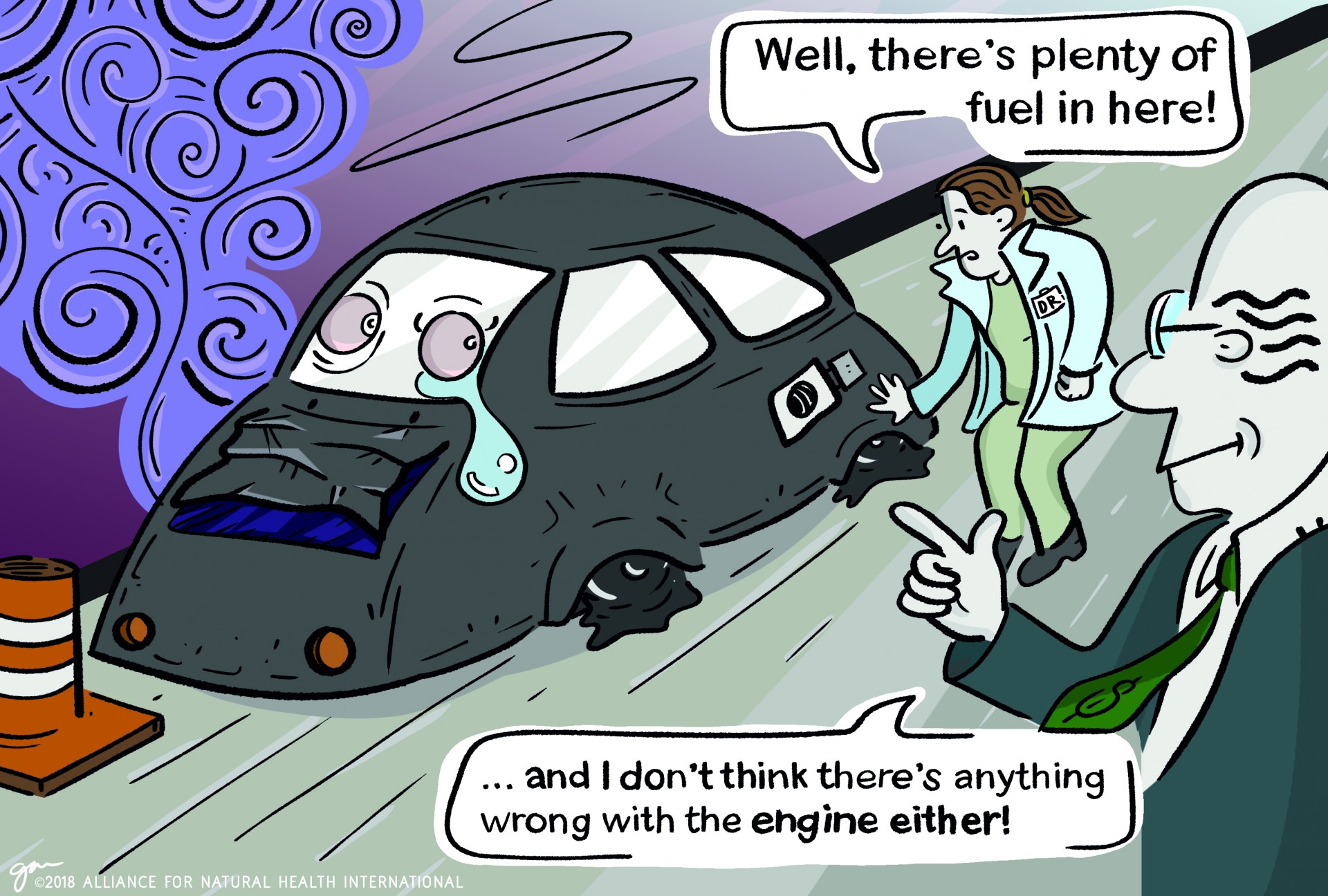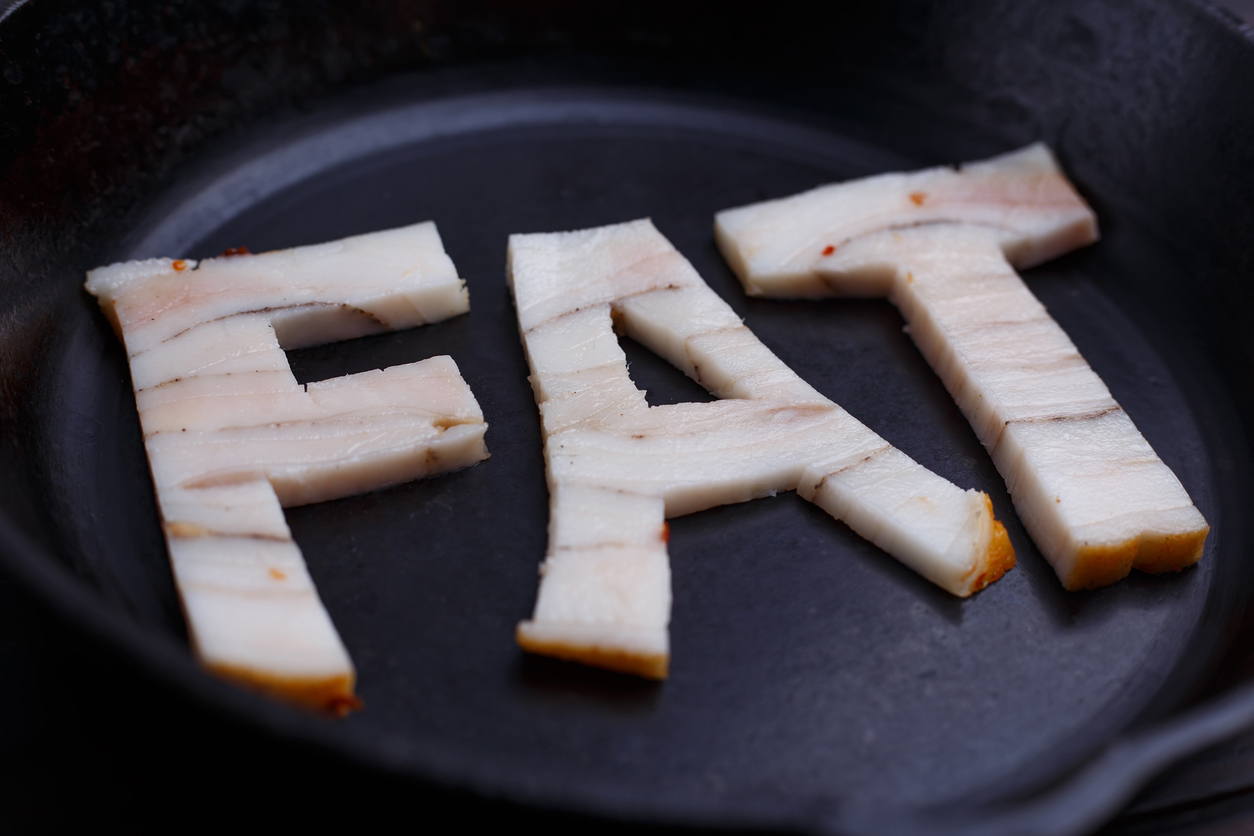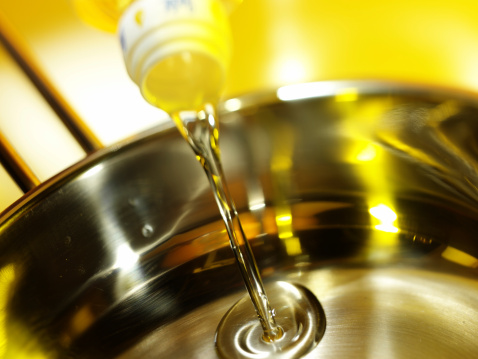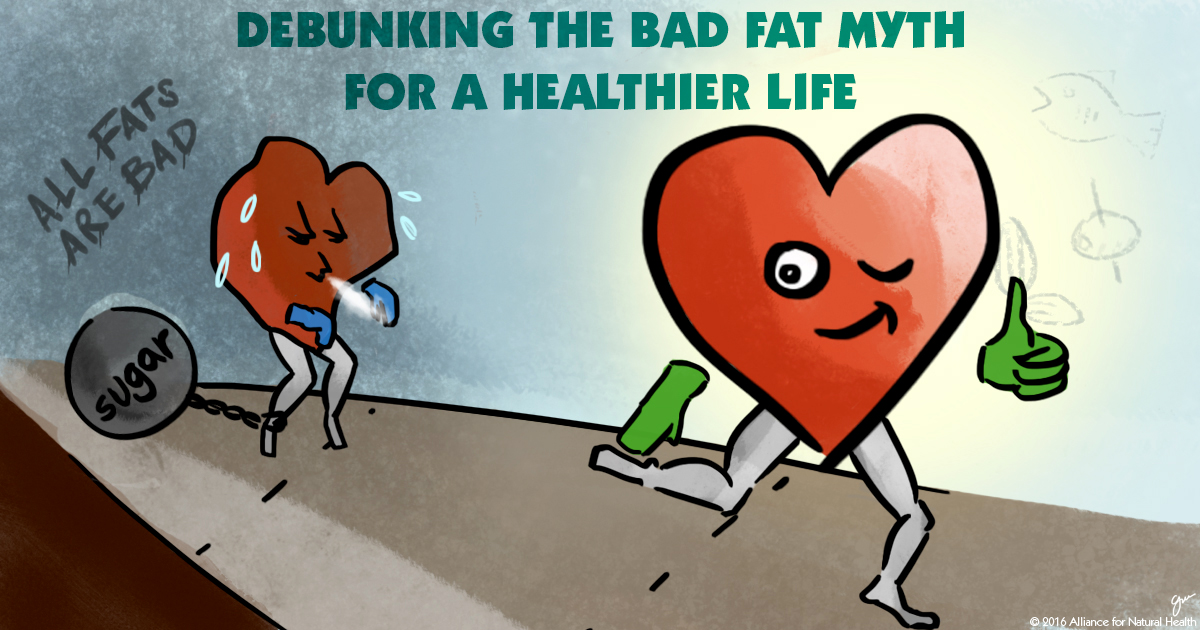As the debate between high fat and low carb diets rages on, for this month's Throwback Thursday we take a look back at why fat is a natural - and essential - part of our diets. Starting with an article on how your body metabolises the food you eat for fuel, to demonstrate why fat is your friend. We then move on to consider some of the fallacies that have grown up around dietary fats, the problems with processed oils and last but not least, why eating fat does not make you fat!
Finally, we've added links to other related articles and videos that may interest you.
It's a fat frenzy! We hope you indulge and enjoy, whilst relegating your fear of fat to the bin marked 'The Past'.
It's type of fuel, not the quantity that really matters
Why calorie counting just doesn't work and how we should eat to become metabolically resilient
Everyone knows obesity and type 2 diabetes are reaching crisis point globally. Governments are panicking; healthcare systems are overwhelmed; scientists and experts are in dialogue. In fact, it’s talked about so often that people are getting more and more desensitised and less motivated to take their own weight management actions. At ANH-Intl, we prefer to focus on making our ‘engine’ as flexible and resilient as possible. The body can then fix itself in most instances.
Despite evidence to the contrary, some mainstream experts continue to peddle the calories in/out argument – usually hand in hand with calls for a low fat/high carb diet. Another story, for another day!
However, calorie counting fails because not all calories are created equal. In the same way as a car, the type of fuel you put in is much more important than how much. Below we summarise how our bodies make and use the fuel from the foods we eat to save you counting calories and help you to become more metabolically flexible and resilient — which is the route to vibrant health!

Lifting the lid on edible fat fallacies
How much longer can fat truths be suppressed by the food industry?
Doesn’t it seem odd that many of the fats predominant in a traditional or even hunter-gatherer diet are now touted by conventional medicine and dietetics as unhealthy? Naturally-occurring, stable, saturated fats from animals and some plants, that we’ve evolved with for hundreds of thousands of years, now come with a health warning. But new-to-nature, highly processed, easily oxidised polyunsaturated vegetable oils that have been part of the human food supply for a fraction of that time are touted as the holy grail of fats. These modern, refined, chemically extracted and heat-treated oils were unavailable to our ancestors and when you read on you’ll realise that nature knows what it’s doing and it’s not the animal fats that should be carrying the health warning.

Next chapter of the great oil debate
Following questions and emails from a recent ANH-Intl feature on edible oils, we pitch two popular edible, high monounsaturated oils against each other
Why they modified traditional rapeseed in the 1970s
Rapeseed (canola) oil has had an unhappy relationship with the media and the public for some time. In relation to non-GMO variants of the oil, as consumed in Europe, some of this may be unjustified. Some of the original negativity came about because of high levels of erucic acid in traditional oilseed rape cultivars (Brassica napus), that also contain significant quantities of bitter, but nonetheless cancer-fighting glucosinolates. A body of science developed between the late-1950s and 1970s suggested that erucic acid may be harmful, specifically after it had been associated with increased heart damage in laboratory animals.
Canadian plant breeders then produced, using traditional breeding techniques, low (less than 2%) erucic acid, ‘Tower’ cultivars, that are the main non-GMO ones cultivated and consumed in Europe, Canada and elsewhere. The name canola was actually derived from “Canadian oil, low acid” in 1978. This variant of rapeseed oil had a quite different nutritional profile to the traditional varieties that had long been used primarily for industrial purposes, notably as lubricants and fuels.
However, since this time, some scientists have questioned the studies that suggest high intakes of erucic acid oil may be damaging. They argue instead that the effects may have been attributable more to the high intake of fat in the experimental animals, rather than the erucic acid itself.

How to spot a sat fat dinosaur
If you fear fat, find out why your fears are scientifically unfounded
Let’s get something straight at the outset: eating fat — not even saturated fat — doesn’t make you fat! That’s despite what you may be reading in the media or being told by your dietitian.
The real demons that are causing waistlines to balloon are our over-consumption of carbohydrates, especially highly processed refined carbs (think sugar, bread, pasta, pizza, cakes…) — along with our pre-occupation with overly frequent snacking and eating. It obviously doesn’t help if you then also spend hours every day not moving – and you also see fit to top up on sugary and junk foods.
OK – diets consistently loaded with some types of fats, such as industrially-created trans fats (e.g. fried or baked foods containing ‘hydrogenated’ oils), large amounts of polyunsaturated Omega-6 fats (e.g. from refined vegetable oils like soya, sunflower, corn, safflower, etc.) or specific kinds of saturated fats (e.g. palmitic acid from refined palm oil) can be harmful and contribute to chronic diseases especially heart disease in the long-term. But it’s a disservice to fats generally to refer to all saturated fats as ‘bad’, just as it’s misleading to label all polyunsaturated fats ‘good’. Contrary to what some health authorities and dieticians who choose to ignore the currently available evidence are saying (yes, we sometimes think of them as ‘sat fat dinosaurs’) specific types of saturated fat, such as the lauric acid and the medium-chain triglycerides in virgin coconut oil, or the palmitoleic acid found in whole (but not skimmed) milk dairy products, are just plain good for us – at least in moderation as with most things dietary. And that’s what our Food4Health guidelines are all about.

You may also enjoy the following related articles:
For fat's sake don't follow those guidelines
Fear of fat: the witch hunt against science-based nutrition
Coconut oil - miracle wonder food or 'sat fat' nightmare?
Saturated fat is not the culprit in heart disease
Are you one of the 60% eating yourself towards chronic disease?
And for those who prefer a video or two:
Back to Food4Health campaign








Comments
your voice counts
27 July 2018 at 10:06 am
What do you think of John Briffa's books, Waist Disposal and Escape the Diet Trap? Thanks
27 July 2018 at 10:54 am
Hi Francis
Thanks, I know John Briffa, but wasn't aware of his books. Looks like good reading for August and then I can comment!
Best regards
Meleni
27 July 2018 at 12:24 pm
High fat diets may damage the limphatic system. There is published research on this topic.
High carb diets will do the same , as all stored as fat when in excess.
Metabolic adaptation can be dealt with with diet breaks, changes of macros and exercise.
Calorie counting can help for people who have lost satiety signals or those that are new to macro nutrients or those who like to calorie counting for whatever reasons.
One way or another it's up to them no?
A bit of a different tone from your previous open minded article on cancer alternative treatments and choice...
29 July 2018 at 9:19 pm
Yes I agree ... calorie counting is a seriously misleading pastime that millions of consumers are obsessed with. Yet again, I don't blame the diet 'experts' for promoting this nonsense - they are either sincere, but sincerely deluded, or they are promoting a product - or both. As we know, the British Public suffers from an incurable affliction called 'Ignorance & Apathy' for which there is no known remedy, except maybe a brain-transplant.
Your voice counts
We welcome your comments and are very interested in your point of view, but we ask that you keep them relevant to the article, that they be civil and without commercial links. All comments are moderated prior to being published. We reserve the right to edit or not publish comments that we consider abusive or offensive.
There is extra content here from a third party provider. You will be unable to see this content unless you agree to allow Content Cookies. Cookie Preferences